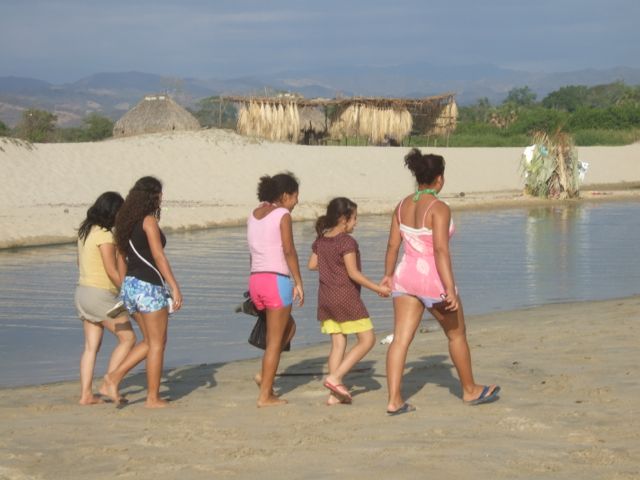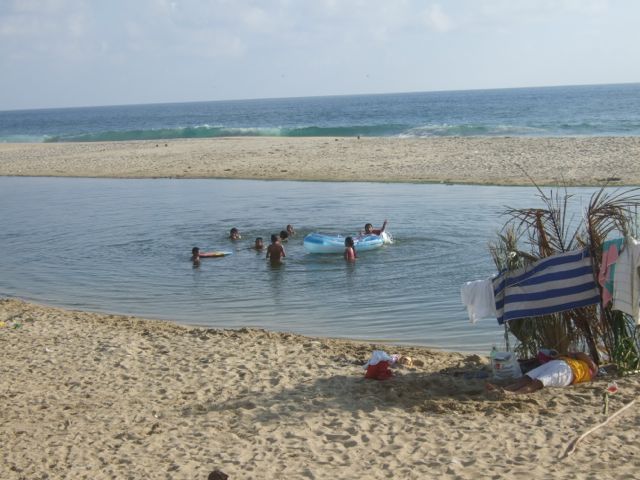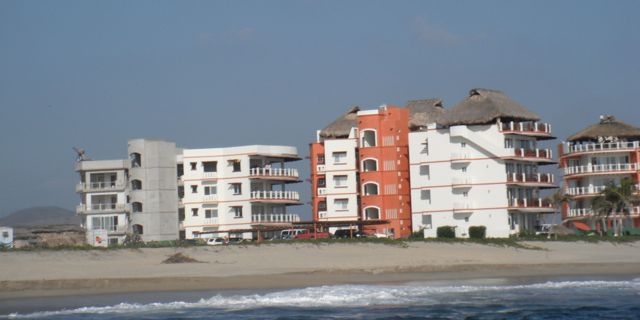Tourist Development On The Chila Coast
What will the coast in Chila, just northwest of Puerto Escondido, look like in a few years? Will there be large resort hotels and
condominium projects? A golf course? Will there be public access to the beaches? Will there be height limits? Will there be rules about
construction materials? The answers to these and many other questions are now in the hands of the Bienes Comunales and the Municipio of San
Pedro Mixtepec.
See Editorial
Although talk about a tourist development plan for the coast from Agua Dulce to Palmarito (the strip of land between the Manialtepec Lagoon and the Pacific Ocean) has been bandied about for some time, it came a step closer to fruition in December when the assembly of comuneros of the Bienes Comunales (Communal Land) voted to allow its governing board (comisariado) to sign covenants and contracts with federal agencies for the purpose of “regularizing” land ownership in this zone.
At present, all the land in San Pedro Mixtepec, outside of that part of Puerto Escondido that was expropriated by the Federal Government in 1970, (see ¡Viva Puerto! #1 and #4), is held communally. This means that legally there is no private ownership, just acts of possession (constancias or actas de posesión) that allow individuals to use specific properties. Regularization would give people with constancias the opportunity to have titles (escrituras). It would also permit foreigners to purchase land through a bank trust (fideicomiso). The Mexican Constitution prohibits foreigners from owning land within 50 km. of the coast, but they can possess land by means of a bank trust. Only land that has an escritura is eligible for a fideicomiso. Beyond that, many Mexicans and Mexican companies feel more comfortable investing in land that has a clear title.
Regularization is not the same as privatization, according to Arturo Guadalupe Cortes Loaeza, the president of the Bienes Comunales. Cortes Loaeza stressed that regularization will be completely voluntary, and people who want to keep their certificates of possession may.
There are still many issues to be resolved before regularization can come about. The assembly left it up to the discretion of the Board to decide which federal agency will be responsible for regularizing the land. According to Cortes Loaeza no decision has been reached yet except that Procede (Programa de Certificación de Derechos Ejidales) will not be involved.
Furthermore, the limits of the area to be regularized, also left up to the Board, are still not defined. The Board president indicated that while Vivo Resorts, located in Palmarito, was not high on the list of properties to be regularized, it might choose to be part of the process.
When asked about the Cabo de las Olas project of the Punta Colorada Hotel and Country Club which began development of a condo complex and golf course in Agua Dulce in 2008 but whose Canadian owner has since put the project on hold, Board members expressed their ignorance of that corporation’s intentions.
Finally, the Board expressed its hope that by the time the super highway to Oaxaca is completed there will be resorts on the Chila coast.















